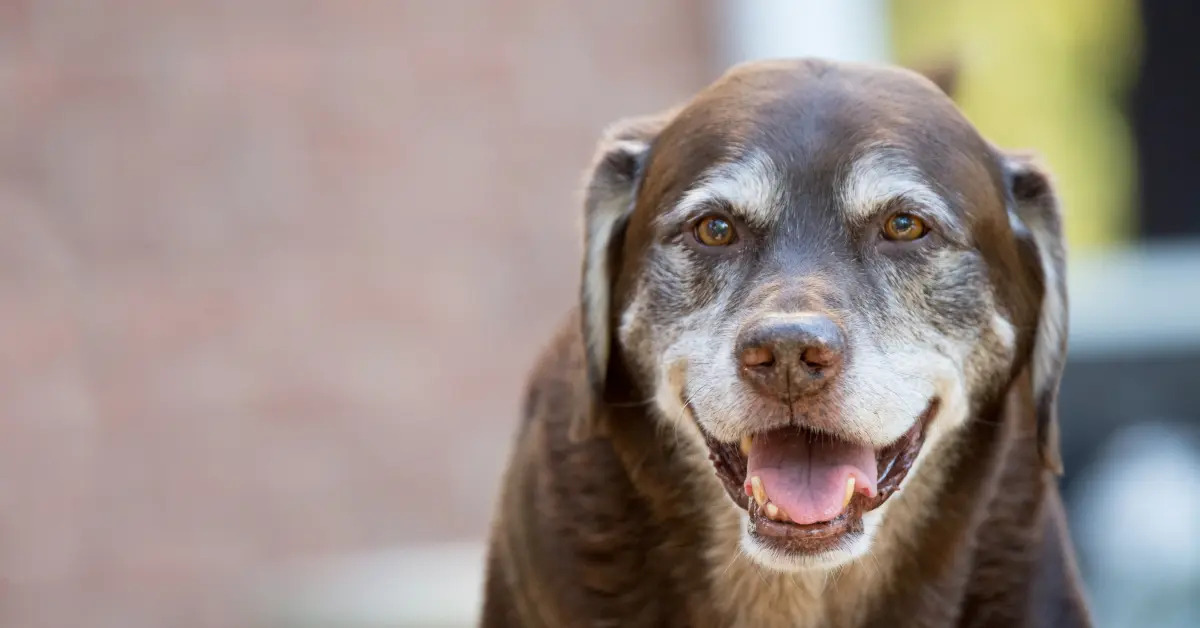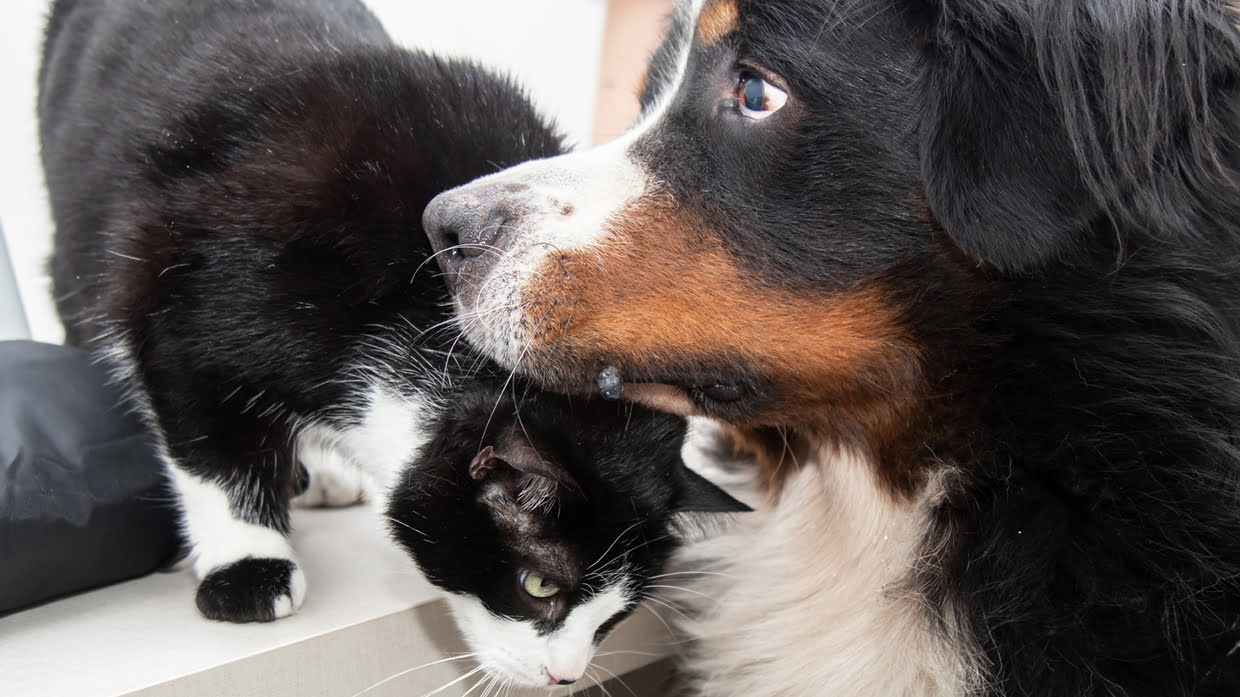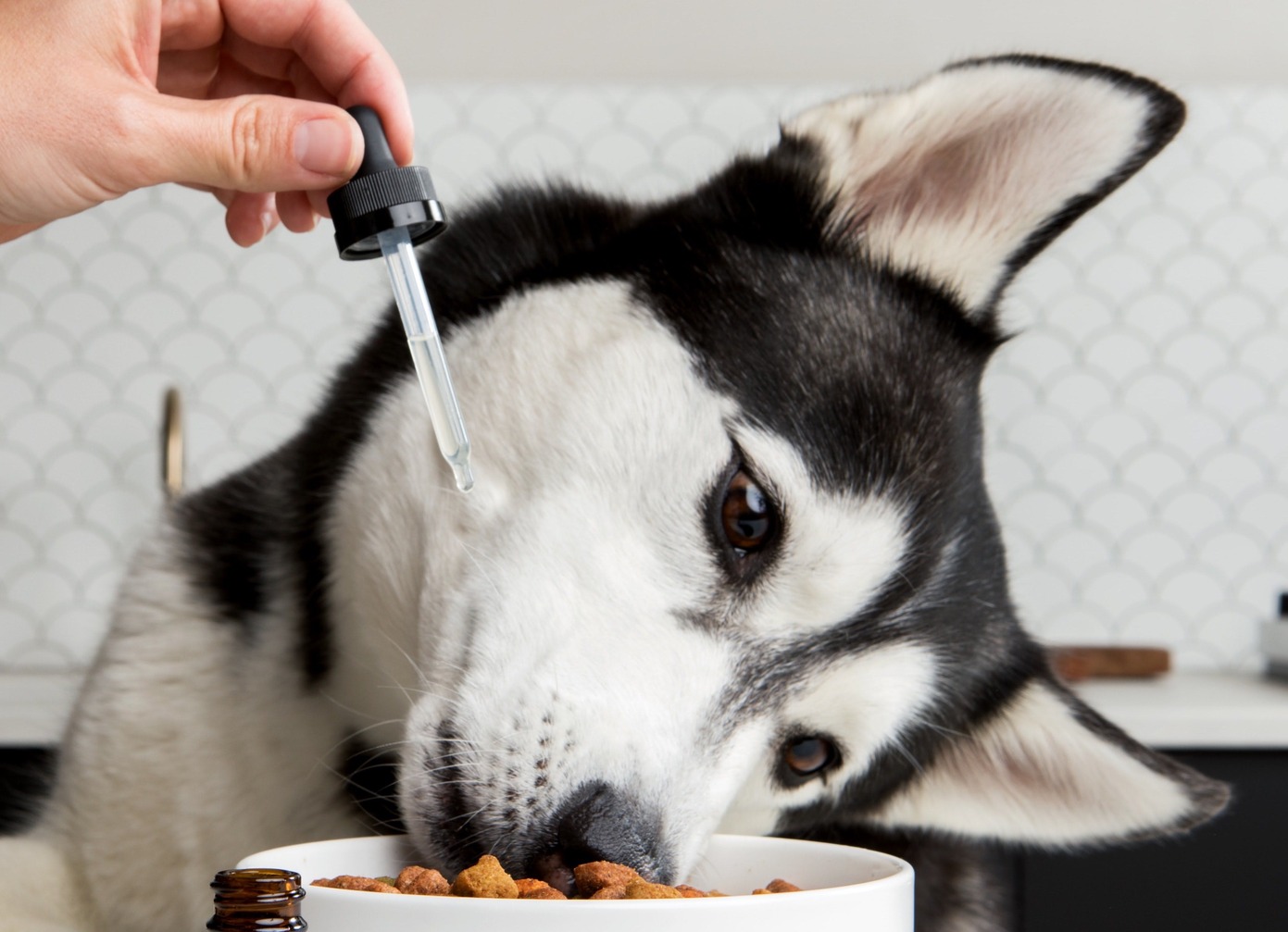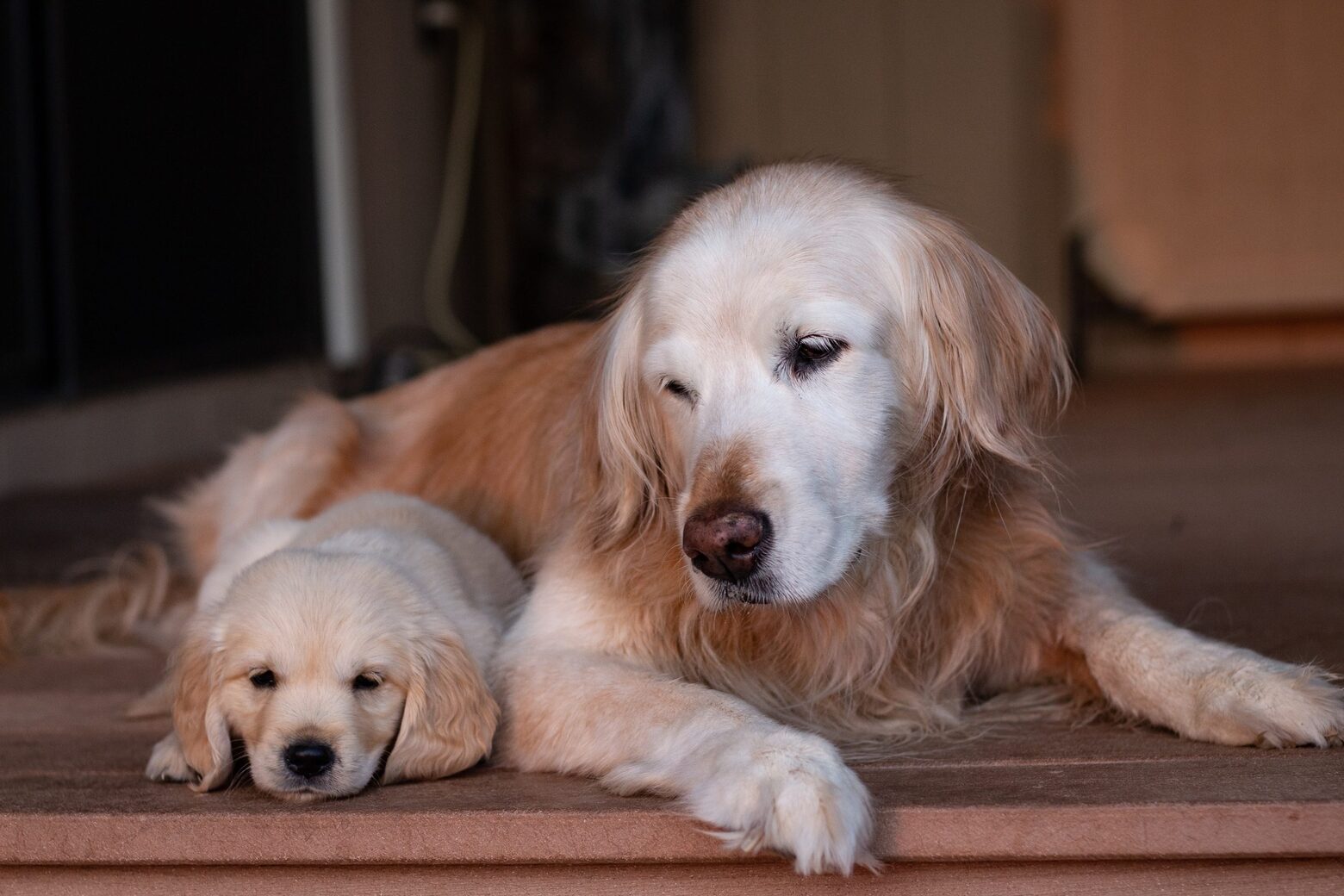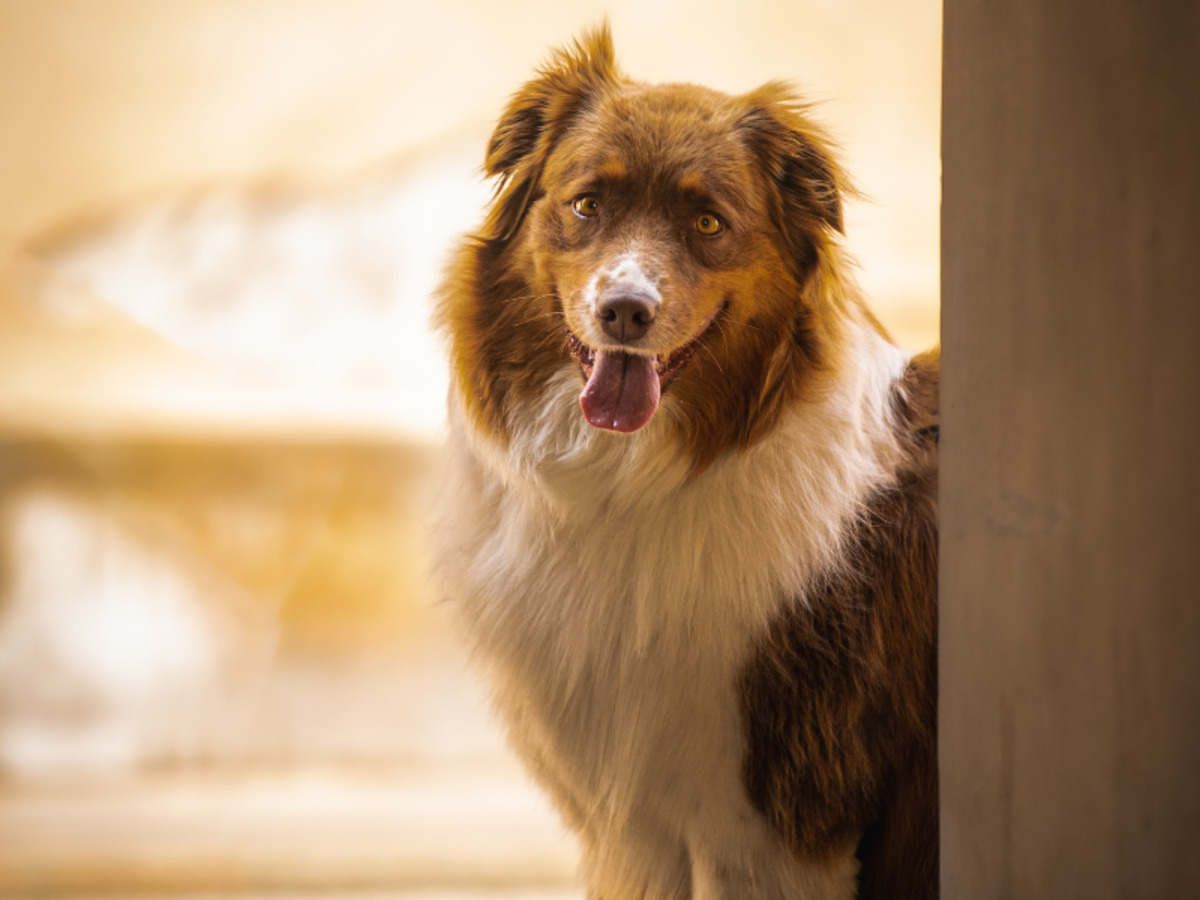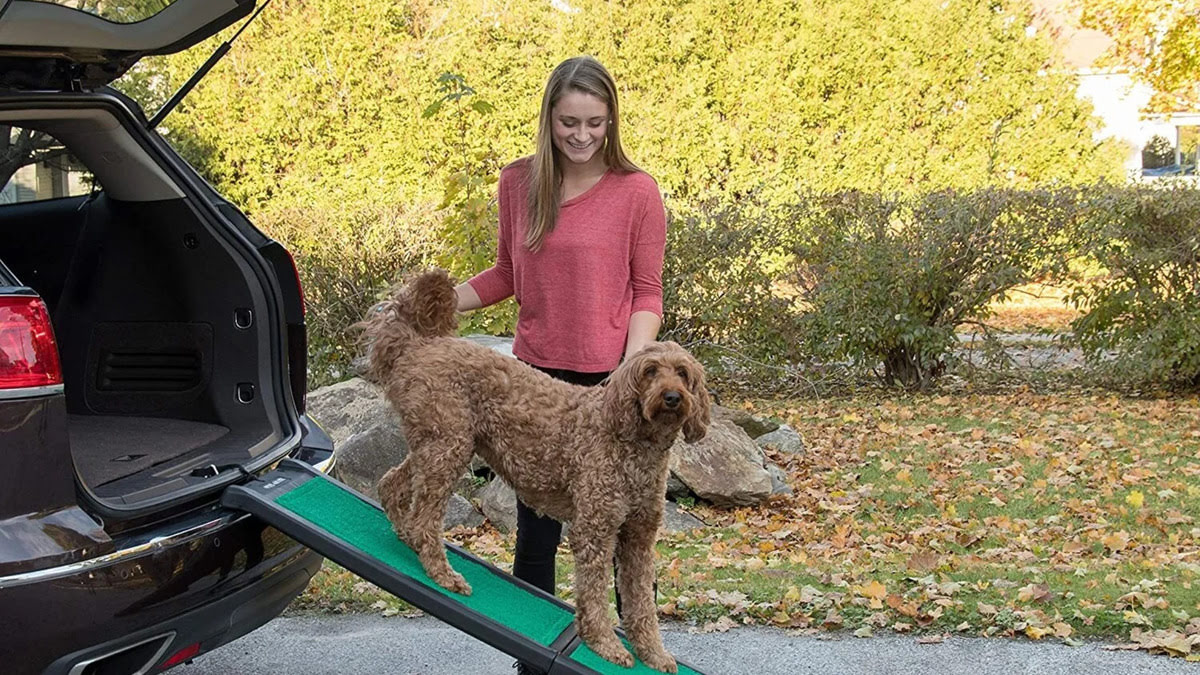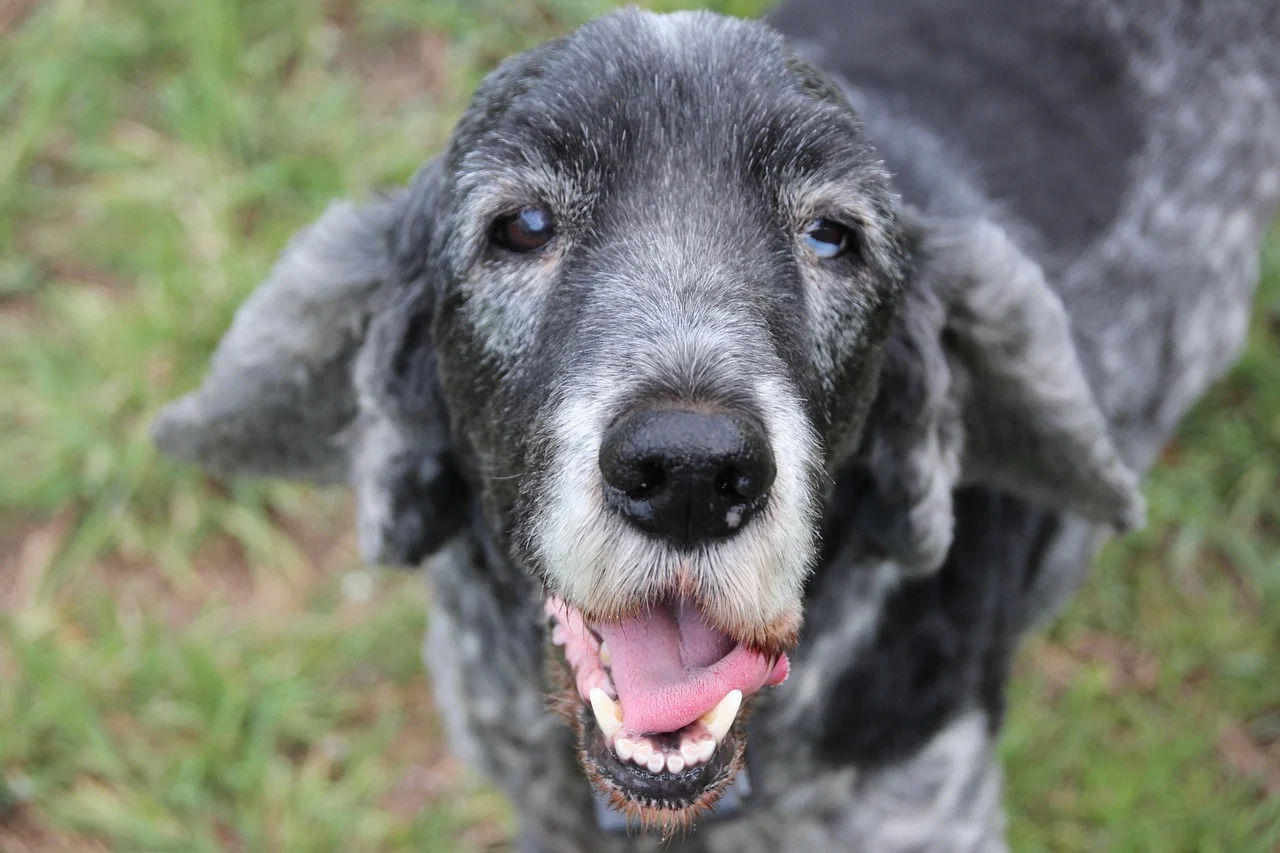Home>Health & Wellness>Behavior & Cognitive Care>How To Get My Senior Dog To Sleep Through The Night
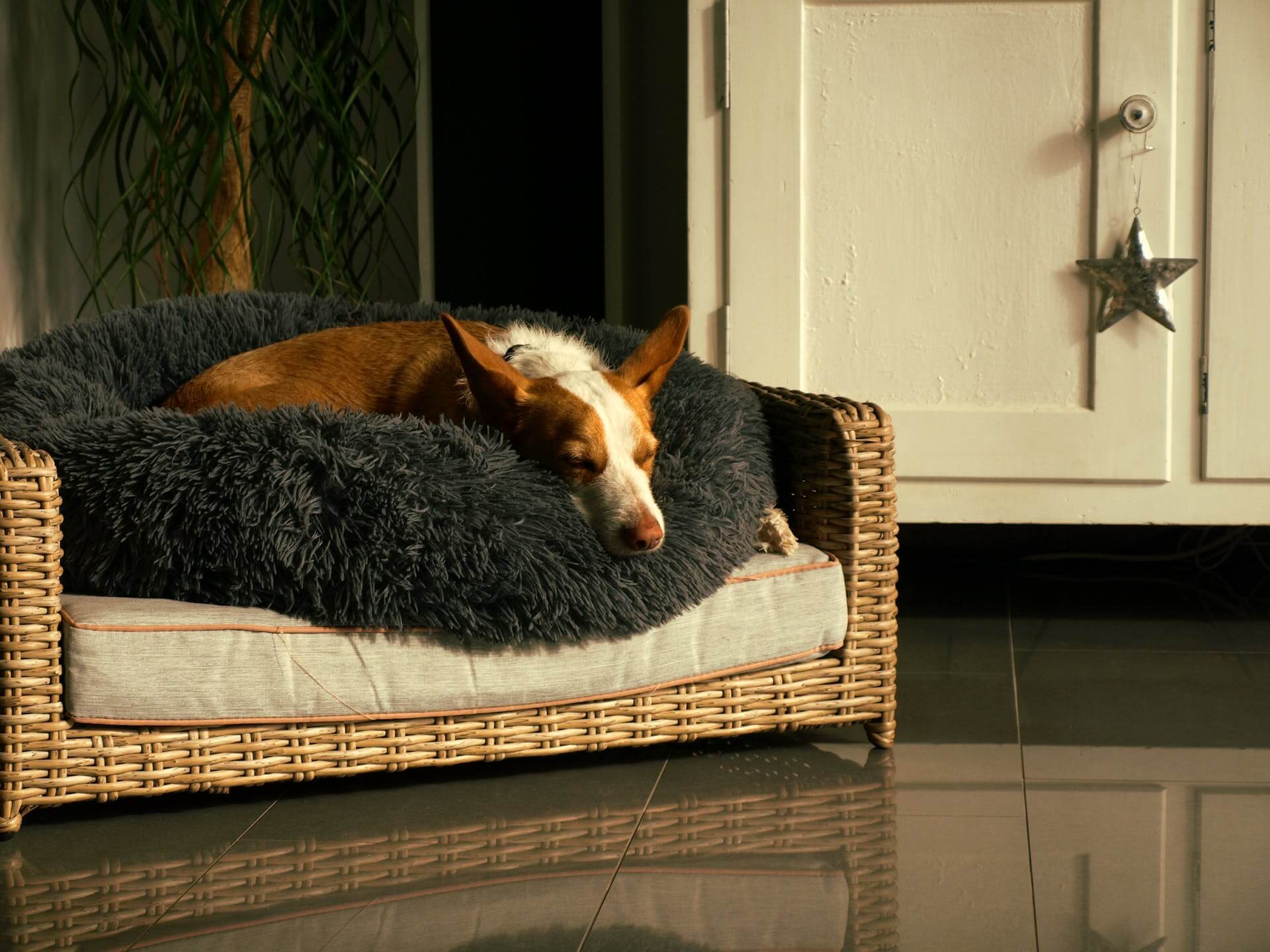

Behavior & Cognitive Care
How To Get My Senior Dog To Sleep Through The Night
Published: February 1, 2024
Learn effective strategies for helping your senior dog sleep through the night with behavior and cognitive care tips. Improve your dog's sleep quality today!
(Many of the links in this article redirect to a specific reviewed product. Your purchase of these products through affiliate links helps to generate commission for Pawsomeoldies.com, at no extra cost. Learn more)
Table of Contents
Introduction
As our beloved canine companions age, they may experience changes in their sleeping patterns, often leading to restless nights for both the dog and their human family members. Just like humans, senior dogs may encounter difficulties in sleeping through the night due to various factors such as discomfort, anxiety, or underlying health issues. Understanding and addressing these challenges is essential in ensuring the well-being of our aging furry friends.
In this comprehensive guide, we will explore effective strategies to help your senior dog sleep through the night peacefully. From creating a comfortable sleeping environment to establishing a bedtime routine and addressing potential health concerns, we will delve into practical and compassionate approaches to support your senior dog's sleep quality. By implementing these strategies, you can provide your senior dog with the care and comfort they need to enjoy restful nights and maintain their overall health and happiness.
Read more: How To Get My Senior Dog To Gain Weight
Understanding the needs of senior dogs
Senior dogs undergo various physical and cognitive changes as they age, which can significantly impact their sleep patterns and overall well-being. Understanding these needs is crucial in providing tailored care to support their comfort and quality of life.
Physical Changes
As dogs enter their senior years, they may experience a decline in mobility and joint flexibility. Conditions such as arthritis and muscle stiffness can make it challenging for them to find a comfortable sleeping position, leading to restlessness during the night. Additionally, older dogs may be more susceptible to incontinence, requiring more frequent bathroom breaks, which can disrupt their sleep.
Cognitive Health
Senior dogs may also encounter cognitive changes, including a decline in sensory perception and cognitive function. This can contribute to disorientation, confusion, and anxiety, especially during the night. Understanding these cognitive shifts is essential in creating a supportive environment that minimizes stress and promotes a sense of security for senior dogs.
Emotional Well-being
Older dogs may experience increased anxiety or separation distress, leading to nighttime restlessness. Changes in their routine or environment can trigger emotional distress, impacting their ability to settle down and sleep soundly. Recognizing and addressing these emotional needs is vital in promoting a sense of calm and security for senior dogs during the night.
Read more: How To Help Dogs With Anxiety At Night
Sensory Sensitivities
As dogs age, they may develop heightened sensitivity to light, sound, and temperature fluctuations. These sensitivities can disrupt their sleep and contribute to nighttime restlessness. Understanding and accommodating these sensory changes can help create a sleep-conducive environment for senior dogs.
By comprehensively understanding the evolving needs of senior dogs, we can tailor our approach to address these specific challenges and provide the support and comfort necessary for them to enjoy restful nights.
Understanding the needs of senior dogs allows us to empathetically address their physical, cognitive, emotional, and sensory requirements, ultimately enhancing their sleep quality and overall well-being.
Creating a comfortable sleeping environment
Creating a comfortable sleeping environment for senior dogs is essential in promoting restful and uninterrupted sleep. By addressing their specific needs and preferences, we can enhance their overall sleep quality and well-being.
Supportive Bedding
Investing in a high-quality, orthopedic dog bed can significantly benefit senior dogs, especially those dealing with arthritis or joint pain. These beds provide ample support and cushioning, relieving pressure on achy joints and promoting better sleep posture. Additionally, waterproof and washable bed covers are practical for managing incontinence issues, ensuring a clean and hygienic sleeping surface for your senior dog.
Temperature and Ventilation
Maintaining a comfortable ambient temperature in the sleeping area is crucial for senior dogs, as they may be more sensitive to temperature fluctuations. Ensuring proper ventilation and avoiding drafts can help regulate the sleeping environment, promoting a cozy and inviting space for your furry companion. During colder months, providing a warm and snug blanket can offer additional comfort and warmth.
Read more: Why Is My Senior Dog Biting?
Dim Lighting and Noise Control
Creating a calming and soothing atmosphere in the sleeping area can aid in minimizing nighttime anxiety and promoting relaxation. Dimming the lights and reducing ambient noise levels can help create a serene environment conducive to restful sleep. Additionally, using curtains or blinds to block out excessive light can be beneficial, especially for senior dogs with heightened sensitivity to light.
Familiar Scents and Comforting Items
Introducing familiar scents, such as a piece of your worn clothing or a favorite blanket, can provide reassurance and comfort to senior dogs, especially those prone to separation anxiety. Additionally, incorporating comforting items, such as a soft toy or a familiar bed, can help create a sense of security and familiarity, promoting a peaceful sleeping environment.
Safe and Accessible Sleeping Area
Ensuring that the sleeping area is easily accessible, especially for senior dogs with mobility issues, is essential. Consider placing the bed in a quiet and low-traffic area of the house, away from potential disturbances. This allows your senior dog to retreat to a safe and undisturbed space when it's time to rest.
By meticulously curating a comfortable sleeping environment tailored to the specific needs of senior dogs, we can create a nurturing and tranquil space that supports their sleep quality and overall well-being.
Establishing a bedtime routine
Establishing a consistent bedtime routine is paramount in promoting healthy sleep patterns for senior dogs. By incorporating predictable and calming activities, we can signal to our furry companions that it's time to unwind and prepare for a restful night's sleep.
Read more: How Often Should I Get Senior Dog Labs?
Regular Bedtime Schedule
Consistency is key when establishing a bedtime routine for senior dogs. Aim to maintain a regular bedtime schedule, ensuring that your dog goes to bed and wakes up at the same time each day. This helps regulate their internal clock and reinforces a sense of predictability, which can be comforting for senior dogs.
Calming Activities
Engaging in calming activities before bedtime can help relax and prepare senior dogs for sleep. Gentle activities such as a short walk, gentle brushing, or quiet playtime can provide a soothing transition to bedtime. Avoiding high-energy or stimulating activities close to bedtime is essential in promoting a sense of relaxation.
Comforting Interactions
Spending quality time with your senior dog before bedtime can strengthen your bond and provide reassurance. Offering gentle pets, cuddles, and soothing words can help alleviate any anxiety or restlessness, creating a sense of security and comfort as they prepare to settle down for the night.
Bathroom Breaks
Encouraging your senior dog to have a final bathroom break before bedtime can minimize disruptions during the night. This is especially important for dogs dealing with incontinence or age-related bathroom needs. Providing ample opportunities for your dog to relieve themselves before settling in for the night can contribute to uninterrupted sleep.
Read more: Why Are Dog’s Skin Allergies Worse At Night
Consistent Sleep Environment
Maintaining a consistent sleep environment is integral to the bedtime routine. Ensure that your dog's sleeping area remains unchanged, with familiar bedding and comforting items. Consistency in the sleeping environment can reinforce a sense of security and stability, promoting peaceful sleep for senior dogs.
Relaxing Bedtime Rituals
Incorporating relaxing bedtime rituals, such as dimming the lights, playing soft music, or offering a bedtime treat, can signal to your senior dog that it's time to wind down. These rituals can become comforting cues that prepare them for a restful night's sleep, fostering a sense of calm and relaxation.
By thoughtfully crafting and adhering to a bedtime routine tailored to the specific needs of senior dogs, we can create a tranquil and predictable transition to bedtime, ultimately supporting their sleep quality and overall well-being.
Providing physical and mental stimulation during the day
Engaging senior dogs in physical and mental activities during the day is essential for promoting their overall well-being and supporting healthy sleep patterns. By incorporating appropriate stimulation, we can help senior dogs maintain cognitive function, manage anxiety, and expend energy, ultimately contributing to a more restful night's sleep.
Physical Exercise
Senior dogs benefit from regular, low-impact physical exercise tailored to their individual needs. Gentle activities such as short walks, swimming, or supervised play sessions can help maintain mobility, manage weight, and promote relaxation. It's important to consider any mobility limitations or health conditions when determining the appropriate level of physical activity for senior dogs. By providing consistent, moderate exercise, we can help them expend energy and reduce restlessness, setting the stage for a more peaceful night's sleep.
Interactive Play
Incorporating interactive play sessions into the daily routine can provide mental stimulation and emotional enrichment for senior dogs. Interactive toys, puzzle feeders, and gentle games that encourage problem-solving can help keep their minds engaged and active. These activities not only stimulate cognitive function but also provide a source of enjoyment and fulfillment, contributing to a sense of contentment and relaxation, which can positively impact their sleep quality.
Enrichment Activities
Introducing enrichment activities that tap into a dog's natural instincts, such as scent work or gentle agility exercises, can provide mental and sensory stimulation. Engaging in activities that stimulate their senses and encourage exploration can help alleviate boredom and anxiety, promoting a sense of fulfillment and mental relaxation. By incorporating enriching activities, we can help senior dogs maintain cognitive sharpness and emotional well-being, which can translate to improved sleep quality.
Mental Stimulation
In addition to physical activities, mental stimulation is crucial for senior dogs. Training exercises that focus on gentle commands, interactive games that encourage focus and attention, and sensory experiences that engage their cognitive abilities can help keep their minds sharp and active. Mental stimulation not only provides an outlet for mental energy but also fosters a sense of accomplishment and confidence, which can contribute to a more settled and restful state, preparing them for a peaceful night's sleep.
By thoughtfully integrating physical and mental stimulation into the daily routine of senior dogs, we can support their cognitive function, manage anxiety, and promote physical relaxation, ultimately setting the stage for a more restful and rejuvenating night's sleep.
Addressing any underlying health issues
Senior dogs are more susceptible to various health issues that can directly impact their sleep quality and overall well-being. Addressing these underlying health concerns is crucial in ensuring that senior dogs can enjoy restful and uninterrupted sleep.
One common health issue among senior dogs is arthritis, a condition characterized by joint inflammation and discomfort. Arthritic pain can significantly disrupt a dog's ability to find a comfortable sleeping position, leading to restlessness and frequent waking during the night. Implementing measures to manage arthritis, such as providing orthopedic bedding, joint supplements, and appropriate pain management under the guidance of a veterinarian, can alleviate discomfort and promote better sleep for senior dogs.
Another prevalent health concern in senior dogs is cognitive dysfunction, often referred to as canine cognitive dysfunction (CCD) or doggy dementia. Dogs experiencing cognitive decline may exhibit symptoms such as disorientation, pacing, and nighttime restlessness. Addressing cognitive dysfunction through specialized diets, cognitive enrichment activities, and veterinary-prescribed supplements can help manage the condition and minimize its impact on a senior dog's sleep patterns.
Furthermore, age-related sensory changes, such as diminished vision or hearing loss, can contribute to nighttime anxiety and disorientation in senior dogs. Adapting the sleeping environment to accommodate these sensory changes, such as using night lights, providing auditory cues, and minimizing sudden environmental changes, can help alleviate anxiety and promote a sense of security during the night.
Incontinence, a common issue in aging dogs, can also disrupt their sleep as they may need to relieve themselves more frequently. Consulting with a veterinarian to address underlying causes of incontinence and implementing management strategies, such as scheduled bathroom breaks and appropriate medication if necessary, can minimize disruptions and support better sleep for senior dogs.
Additionally, systemic health conditions such as heart disease, respiratory disorders, and endocrine imbalances can impact a senior dog's sleep quality. Managing these conditions through veterinary care, medication, and lifestyle adjustments can help mitigate their effects on sleep and overall well-being.
By proactively addressing any underlying health issues through veterinary consultation, tailored management strategies, and supportive care, we can significantly improve the sleep quality and comfort of senior dogs, ultimately enhancing their overall quality of life.
Read more: How To Get Rid Of Fleas And Ticks On My Dog
Consulting with a veterinarian
Consulting with a veterinarian is an essential step in ensuring the holistic well-being of senior dogs, particularly when addressing sleep-related concerns. Veterinarians play a pivotal role in identifying and managing age-related health issues, providing tailored recommendations, and offering comprehensive guidance to support the sleep quality and overall comfort of senior canine companions.
When seeking guidance on optimizing a senior dog's sleep, scheduling a thorough veterinary examination is the initial and crucial step. During the examination, the veterinarian can assess the dog's overall health, including any underlying medical conditions that may impact their sleep patterns. This comprehensive evaluation may involve assessing mobility, joint health, cognitive function, sensory changes, and any signs of discomfort or pain that could affect sleep.
In cases where specific health issues are identified as contributors to sleep disturbances, the veterinarian can devise a targeted treatment plan. This may include prescribing medications to manage pain, inflammation, or cognitive dysfunction, as well as recommending specialized diets and supplements tailored to the dog's individual needs. Additionally, the veterinarian can provide guidance on implementing lifestyle modifications to accommodate age-related changes, such as managing incontinence or adapting the sleeping environment to address sensory sensitivities.
Furthermore, veterinarians can offer valuable insights into creating a supportive and comfortable sleeping environment for senior dogs. They can provide recommendations on selecting appropriate bedding, managing temperature and ventilation, and addressing any environmental factors that may impact sleep. By leveraging their expertise, veterinarians can help pet parents make informed decisions to optimize their senior dog's sleep environment.
In addition to addressing physical health, veterinarians can also provide guidance on managing behavioral and emotional factors that influence sleep. They can offer advice on implementing calming bedtime routines, addressing anxiety or restlessness, and promoting mental and emotional well-being in senior dogs. This comprehensive approach considers the interconnectedness of physical and emotional health, recognizing that both play a significant role in a dog's sleep quality and overall comfort.
Overall, consulting with a veterinarian is a fundamental aspect of promoting restful and rejuvenating sleep for senior dogs. By collaborating with veterinary professionals, pet parents can gain valuable insights, personalized recommendations, and tailored care plans to support their senior dog's sleep quality, contributing to enhanced well-being and a fulfilling companionship in their golden years.
